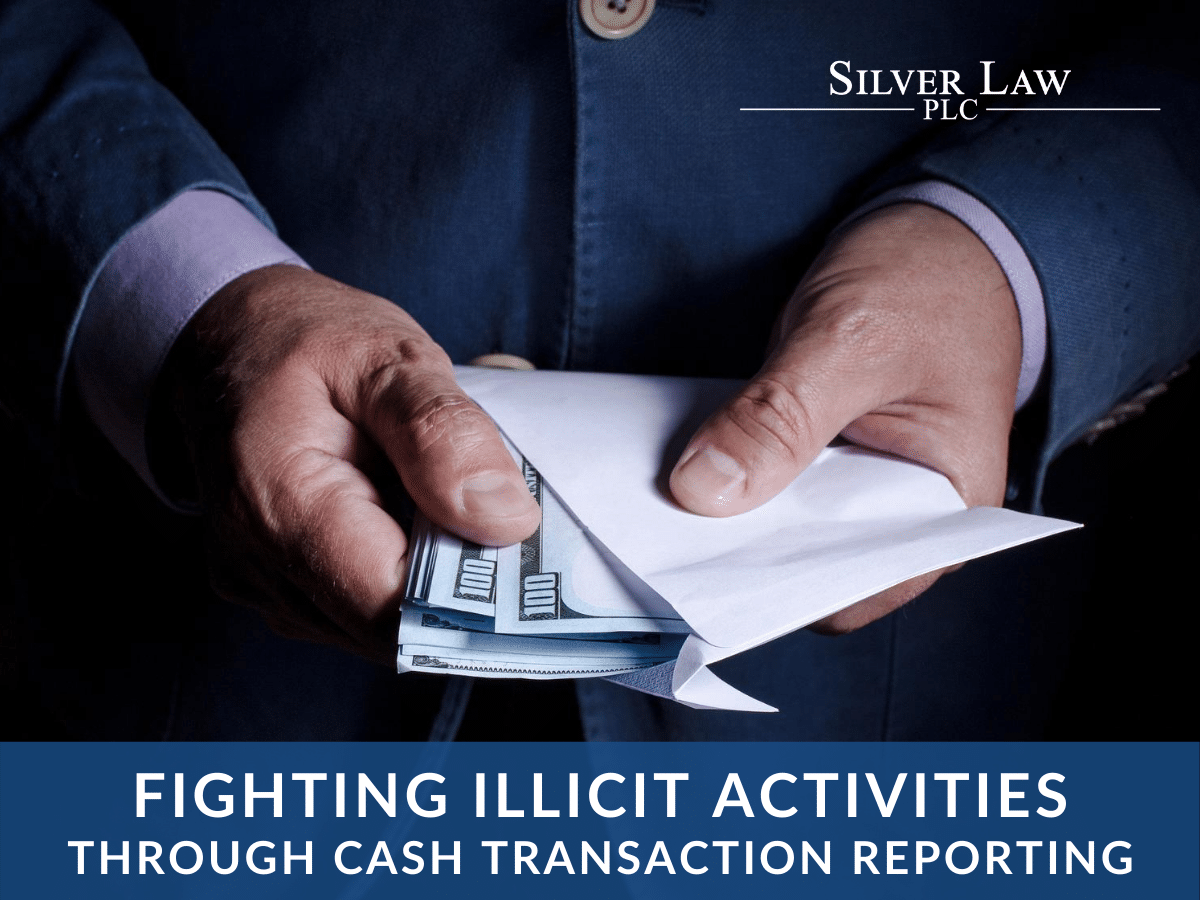Form 8300 and Your Car Dealership's Reporting Requirements Any car dealer in Arizona that receives…
A lot of criminals deal in cash in order to avoid detection by the authorities, including tax officials. But they know that if law enforcement starts looking closer into their lifestyles, they need to have a way to explain how they can afford to live the way the do. So, they set up fake sources of income and launder the money to make it look legitimate.
The IRS attempts to regulate this illegal activity by requiring anyone who receives over $10,000 in cash in a trade or business transaction to report it. This requirement meant to curtail criminal activity, such as money laundering, tax evasion, drug dealing, and terrorist financing. Our Gilbert tax lawyers keep up to date on every method of fighting criminal activity that the IRS has detailed.

Anyone who receives more than $10,000 in cash in a single transaction or series of related transactions (such as payments toward a specific purchase) are required to file Form 8300 with the government. A “person” can be an individual, or it can be a company, partnership, association, trust, or estate.
Tax-exempt agencies are also included in this legal definition. Tax-exempt organizations have to file Form 8300 for non-charitable transactions, such as renting out space in the building. However, these organizations do not have to file the form for charitable contributions.
Of course, Form 8300 is required for any actual cash, including coins and currency. The form is required for currency of the United States, as well as any foreign country. The form is also required for anything that is considered a cash equivalent, such as a check, cashier’s check, bank draft, or money order if the amount of such is less than $10,000.
These items are also considered cash for the purposes of the form requirement if they are under $10,000 but are paid in conjunction with cash to exceed $10,000. Banks automatically report cash purchases of these checks and money orders if they are for more than $10,000.
The above are general guidelines for who needs to file Form 8300. But there are many more details, of course.
Anyone who receives more than $10,000 in cash (or the equivalent) for selling personal property such as cars or jewelry, or for selling collectible items like art or antiques, has to file the form.
Taxpayers must file the form if they receive more than $10,000 in cash, either in one lump sum or in more than one payment within 24 hours. The form must be filed if the payment is for a single transaction, such as the purchase of a vehicle, even if payment is made in two or more related transactions within 12 months. For example, a landlord who receives more than $10,000 in cash payments over the year would need to file the form. Consult with your local Phoenix tax lawyer to learn all the specifics of your filing taxes.
The IRS requires that Form 8300 be filed relatively quickly. You can’t put it off until the end of the year when you’re ready to file your return. You have to file the form within 15 days of receiving the cash. If you are receiving more than $10,000 in cash from multiple related transactions, the countdown starts from the last transaction that crosses the $10,000 threshold. A new form has to be filed for each $10,000, even if there are additional transactions.
Form 8300 can be filed electronically through the Financial Crimes Enforcement Network’s BSA E-Filing System. It is free to file the form, and an electronic confirmation is sent after the form is received. Taxpayers can also file the form through the mail. It must be sent to the Internal Revenue Service, Detroit Federal Building, PO Box 32621, Detroit, MI 48232.
A taxpayer identification number for the person paying in cash must be included on the form. The IRS may levy a penalty on anyone who refuses to provide that information. You would just need to report that the TIN was refused. Provide records documenting the refusal, if possible, such as an email or text exchange.
When you file a Form 8300, you also have to notify the person who paid in cash that you filed it by the end of January following the close of the taxable year. If you feel like the transaction was suspicious, the law actually prevents you from informing the payer that you filed a Form 8300. Our Phoenix tax attorneys are equipped to help you handle this process.
The rules around reporting cash transactions can get a bit tricky, depending on your business. It’s important that you work with a tax professional to meet your reporting requirements so that you aren’t investigated on suspicion of criminal activity. The penalties can be severe, and the process of defending yourself can be time-consuming and expensive.
If you are currently facing penalties or even prosecution related to the filing of Form 8300 (or the failure to file), call our team to talk with one of our Arizona tax lawyers today. We represent clients facing criminal and civil prosecution, and we will fight to defend you against the charges or to minimize the penalties. Contact Silver Law PLC to learn more about your legal options.
Arizona Location
7033 E. Greenway Pkwy, Ste 200
Scottsdale, AZ 85254
Office:480-429-3360
Email: lchapman@silverlawplc.com
Website: taxcontroversy.com
Nevada Location
410 South Rampart Blvd, Suite 390
Las Vegas, Nevada 89145
Office: 702-318-7130
Email: lchapman@silverlawplc.com
Website: taxcontroversy.com
How Do I Handle a Criminal Tax Investigation By The IRS? Paying taxes is a…
Recent Injunctions Updates To Beneficial Ownership Reporting Requirements Breaking Down The Latest Changes To BOI…
What Should I Do If I Disagree With The Outcome Of An IRS Audit? Learn…
4 Tax Schemes From The IRS's "Dirty Dozen" List That Can Get The Average Taxpayer…